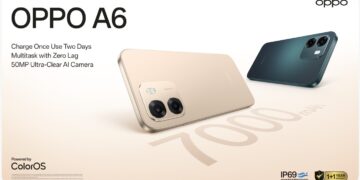Introduction: Instant Coffee and Eye Health Concerns
A recent scientific breakthrough by researchers in China has revealed a potentially alarming connection between the consumption of instant coffee and age-related macular degeneration (AMD), a serious eye condition that leads to progressive vision loss. According to the study, individuals who regularly consume instant coffee are seven times more likely to develop AMD compared to those who drink other types of coffee, such as ground or brewed varieties.
The research, which was led by Dr. Chi Jia, a prominent ophthalmologist, highlights a pressing public health issue. While coffee remains one of the world’s most consumed beverages, the chemical composition of instant coffee, particularly a substance called acrylamide, may be contributing to retinal damage and long-term visual impairment.
Understanding Age-Related Macular Degeneration (AMD)
What Is AMD?
Age-related macular degeneration is a degenerative eye disease that affects the macula, the central part of the retina responsible for sharp, central vision. This condition is most common in people aged 50 and older and is a leading cause of irreversible blindness in older adults globally.
There are two main types of AMD:
- Dry AMD (more common and progresses slowly)
- Wet AMD (less common but more severe and rapid in progression)
Symptoms of AMD
- Blurred or distorted vision
- Dark or empty spots in the center of vision
- Difficulty recognizing faces
- Trouble reading or driving, especially in low light
Although the exact causes of AMD are not fully understood, a combination of genetic predisposition, aging, lifestyle habits, and environmental exposures are believed to play a role.
The Research Findings: Coffee Type Matters
Study Background and Methodology
The research was conducted by a team of ophthalmologists and nutritional scientists in China. The study analyzed data from thousands of participants, monitoring their coffee consumption habits, health records, and retinal scans over several years. The participants were grouped based on the type of coffee they consumed most frequently: instant, brewed, or espresso.
It was found that individuals who consumed instant coffee daily had a markedly higher risk of developing signs of macular degeneration, even after adjusting for age, smoking status, and other potential risk factors.
Key Finding: 7x Higher Risk
The standout finding was that instant coffee drinkers were seven times more likely to develop AMD than those who consumed other coffee types. This statistically significant result has caused a stir in the medical and public health communities.
Acrylamide: The Chemical Culprit in Instant Coffee
What Is Acrylamide?
Acrylamide is a chemical compound that forms when coffee beans or other starchy foods are roasted or cooked at high temperatures. It is commonly found in:
- Fried foods like French fries and chips
- Toasted bread
- Roasted coffee, especially instant varieties
While acrylamide is present in many foods, instant coffee contains higher concentrations due to the intensive heat treatment used in its production process.
How Acrylamide Affects the Retina
Once ingested, acrylamide can enter the bloodstream and potentially accumulate in sensitive tissues such as the retina. Researchers believe that the chemical may cause oxidative stress and inflammation, damaging the cells of the macula over time.
Dr. Chi Jia explained, “Our study points to a biological mechanism where acrylamide disrupts retinal homeostasis, ultimately leading to degeneration. While more research is needed, the findings are concerning enough to recommend caution with instant coffee intake, especially among high-risk groups.”
Expert Opinions and Public Health Implications
Ophthalmologists Weigh In
Several leading eye specialists have endorsed the findings of the Chinese study and called for greater awareness of how diet affects eye health. Dr. Martin Lau, a UK-based ophthalmologist not involved in the study, remarked:
“It’s not just about sugar or salt anymore. We now know that even something as commonplace as instant coffee could be a silent contributor to vision loss. Patients should be made aware.”
Recommendations for High-Risk Groups
According to Dr. Jia and her team, the following groups should be particularly cautious:
- Individuals over the age of 50
- People with a family history of AMD
- Smokers
- Diabetics and those with chronic inflammation
She recommends either eliminating or significantly reducing the consumption of instant coffee and switching to freshly brewed or filtered coffee, which tend to have lower acrylamide content.
What Alternatives Are Safer for Coffee Lovers?
Brewed Coffee vs. Instant Coffee
Unlike instant coffee, brewed coffee is prepared using ground beans and hot water without the high-temperature dehydration process that creates large amounts of acrylamide.
Studies suggest that:
- Brewed coffee has richer antioxidants, which may actually be protective against AMD.
- Ground coffee contains less acrylamide per serving.
- Espresso, although more concentrated, also tends to be lower in acrylamide due to shorter brewing time.
Switching to Eye-Friendly Beverages
For individuals seeking to maintain eye health, doctors recommend incorporating the following beverages:
- Green tea (rich in catechins)
- Blueberry juice (high in anthocyanins)
- Carrot juice (rich in beta-carotene and lutein)
These drinks support retinal function and may counteract the effects of harmful chemicals like acrylamide.
How to Protect Your Vision: Proactive Steps
1. Regular Eye Exams
Early detection of AMD is crucial. Individuals over 40 should schedule yearly comprehensive eye exams, including retinal imaging.
2. Adopt a Retina-Friendly Diet
Foods rich in lutein, zeaxanthin, omega-3 fatty acids, and vitamins A, C, and E are known to support eye health. These include:
- Leafy greens (spinach, kale)
- Fatty fish (salmon, mackerel)
- Eggs
- Nuts and seeds
3. Avoid Smoking and Manage Blood Pressure
Both smoking and hypertension are major risk factors for AMD. Quitting smoking and keeping blood pressure under control significantly reduce the risk of vision loss.
Conclusion: Awareness is the First Step Toward Prevention
The recent revelation by Chinese researchers about the potential link between instant coffee and macular degeneration serves as a wake-up call for consumers and healthcare providers alike. As coffee continues to be a staple in millions of lives, understanding the health implications of different types is crucial.
While the study does not advocate giving up coffee altogether, it urges people to make informed choices, especially those already at risk of eye disease. The growing body of research now suggests that what you drink can affect what you see — quite literally.

























